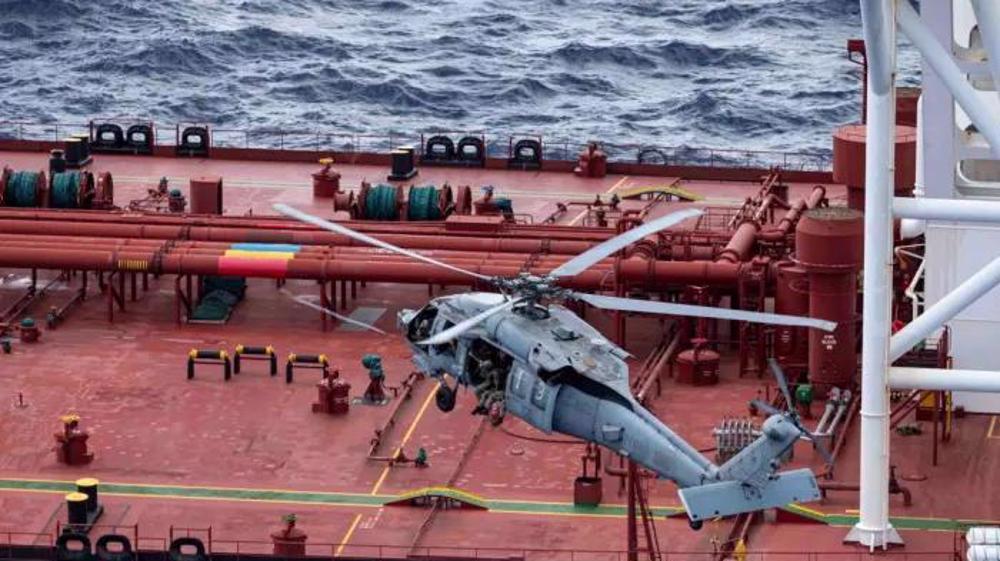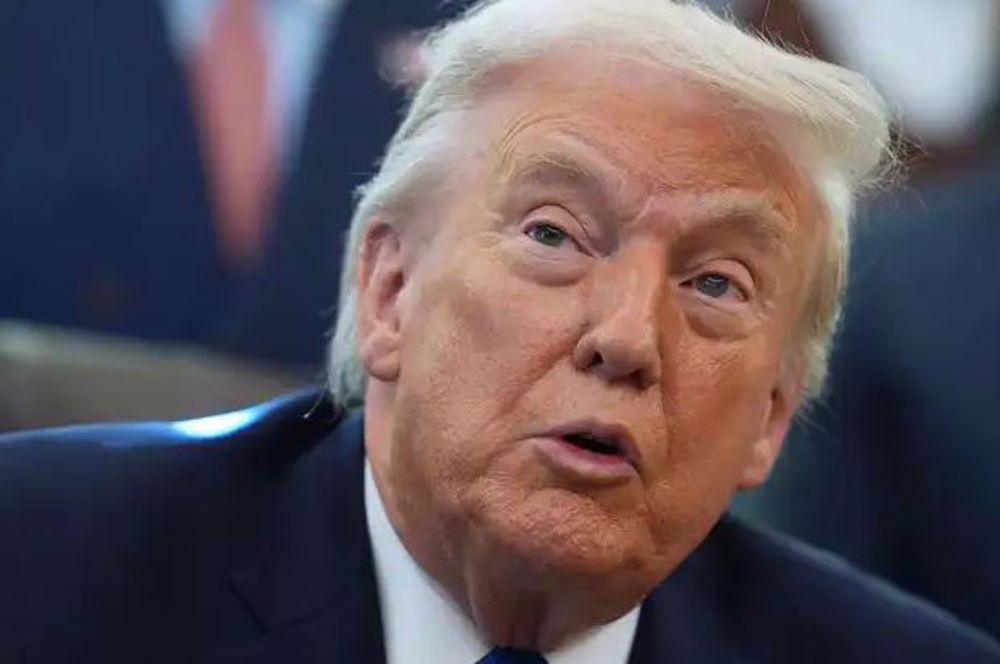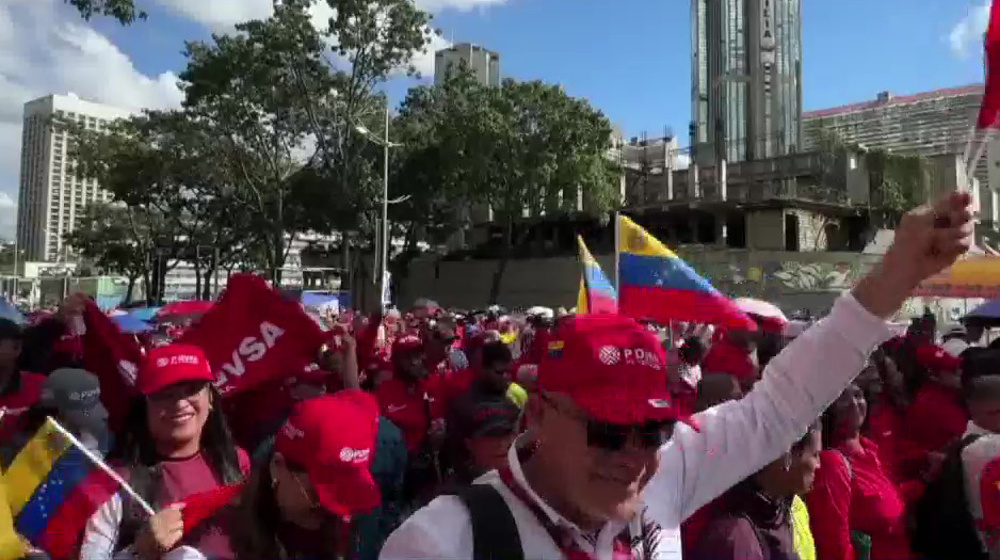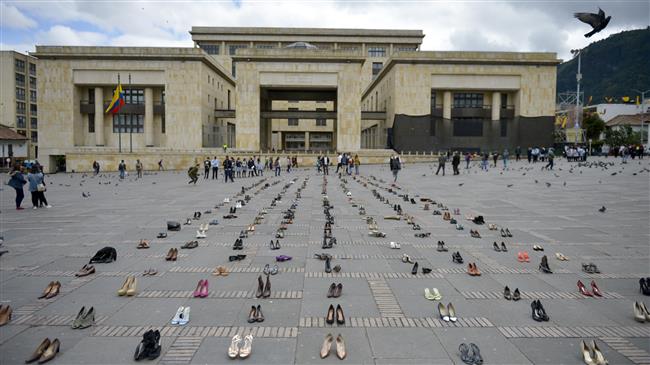Campaign against US imperialism garners 13 million signatures in Venezuela
The government of Venezuelan President Nicolas Maduro has launched a worldwide campaign in denunciation of US economic sanctions against the Latin American country and garnered more than 13 million signatures as part of an official petition set to be delivered to the United Nations.
Maduro initiated the campaign last month after US President Donald Trump issued an executive order that officially seized Venezuelan state assets in the US and imposed a complete economic and diplomatic blockade on the country.
The government in Caracas wrapped up the “No more Trump” campaign with a total of 13,287,742 signatures on Sunday as thousands gathered in the capital as well as other major cities across Venezuela to sign the petition calling on the United States to lift the unilateral blockade.
“In every corner of the planet, we have seen the #NoMoreTrump campaign because it is a feeling that has expanded to the peoples of the world. This campaign symbolizes anti-imperialism,” said Venezuela’s Vice President Delcy Rodriguez, who signed the petition herself during one of the closing acts in Caracas.

“The petition is the expression of the will of a people who want peace, progress, tranquility and above all want to guarantee a free and sovereign homeland,” Rodriguez added.
In his executive order on August 5, Trump said "all property and interests in property of the government of Venezuela that are in the United States... are blocked and may not be transferred, paid, exported, withdrawn, or otherwise dealt in.”
The order was also designed to prevent third-party countries doing business with Maduro’s government.
Rodriguez, along with Venezuela’s Foreign Affairs Minister Jorge Arreaza, were appointed by Maduro last week to represent the nation at the 74th Session of the United Nations General Assembly from September 17 to 30.
During the international meeting, the Venezuelan representatives are supposed to deliver a letter to UN Secretary-General Antonio Guterres with the 13-million-signature petition and explain the global rejection of the unilateral economic blockade against the Latin American nation.
Washington has already imposed rounds of sanctions against the oil-rich country to oust Maduro and recognized opposition figure Juan Guaido, who declared himself “interim president” earlier this year.
The Latin American country has been beset by political turbulence, with the opposition resorting to inordinate measures and violence in an attempt to unseat the Maduro government, which nevertheless continues to stand.
The Trump administration has confiscated Venezuela’s state oil assets based in the US and has been channeling them to Guaido.
The United States, in unison with some anti-Maduro state leaders in the Latin American region, has gone as far as to say that it backs a military intervention to oust the 56-year-old elected president.
Venezuela has in response launched extended military drills along its border with Colombia in an effort to prepare for any foreign invasion.
The tense relations between Caracas and Bogota grew even worse earlier his month after Colombian far-right President Ivan Duque accused Maduro of providing “shelter and support” to Colombia’s rebel group FARC.
FARC recently took up arms once again after three years of peace with the Colombian government.
Maduro, however, denied the allegation, saying that the Colombian government was “using unfounded accusations to threaten Venezuela and provoke a military conflict with our country.”
On Saturday, the Colombian president called for coordinated international sanctions against Venezuela to help stop what he claimed was Maduro's support for Colombian rebels destabilizing Latin America.
Maduro has previously accused Colombia of plotting to assassinate him.
Iran’s layered arsenal primed to deter – and decimate – US warships in Persian Gulf
Iranian commander dismisses US military buildup in West Asia as ‘theatrical gesture’
Trump ‘curious’ why Iran hasn’t ‘capitulated’ despite massive US military buildup: Witkoff
Hawkish US senator pushes Trump to ignore aides, press ahead with war against Iran
Far-right, anti-Islam protest sparks counter-protests in Manchester
Press TV's news headlines
Sudan’s mining sector suffers $7 billion loss amid ongoing civil war
Ansarullah slams Israel’s massacre in east Lebanon, urges unified Arab action


















 This makes it easy to access the Press TV website
This makes it easy to access the Press TV website